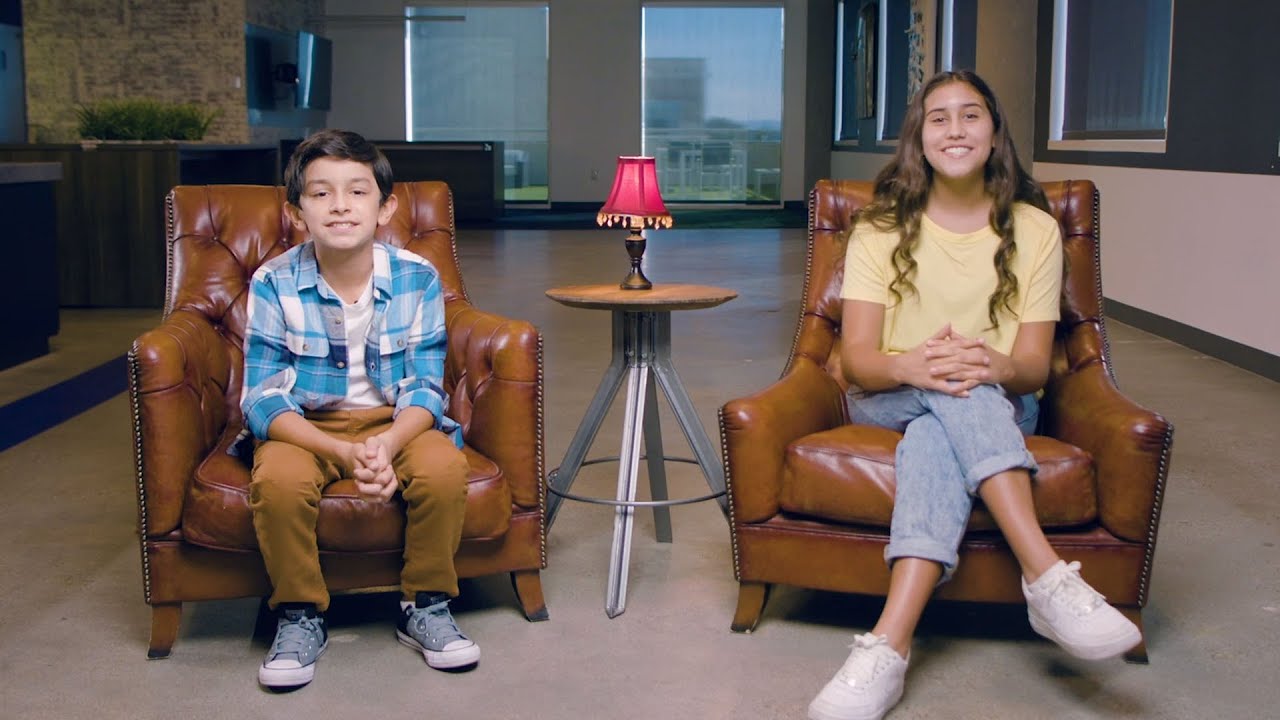- Home
- About
- Careers
- News & Reports
- Parents
- Youth in Care
- Foster & Adoption
- Resources
- Services
- Report Child Abuse
Arizona Department of Child Safety
Phone: Child Abuse Hotline 1-888-767-2445
Now that you’ve learned a little bit more about fostering, let’s get you oriented on kinship care.

Alright, next up, we're talking about kinship care.
That's right. In Arizona, nearly half of children in foster care reside in kinship care.
And we have a special speaker to help explain some of the finer details of kinship care. Say hi to Tene.
My name is Tene, and I'm Imani's aunt. I became her foster kinship caregiver 11 years ago. Kinship foster care is when a child is removed from their family by AZDCS and placed with relatives or individuals who have an existing relationship with the family. Most relatives start out as kinship foster caregivers and then decide to become licensed to gain access to additional support. My niece was immediately placed with me after being removed from my sister. Unfortunately, my sister was unable to successfully reunify with Imani. So when Imani became available for adoption, I adopted her and this is a decision I've never regretted.
There are some important differences between kinship foster care and community foster care. Kinship foster caregivers often already have the child placed with them by AZDCS and have a blood or significant relationship with the family or child prior to placement. Kinship caregivers may be licensed or unlicensed, but either way, they work with the team to follow the safety plan created by AZDCS. A kinship caregiver who chooses to get licensed will go through the same process as a community foster caregiver and maintain licensing compliance through ongoing inspections by a licensing agency and AZDCS. Being placed with and cared for by a relative or another familiar adult helps children stay connected to their relatives, culture and community. It may also reduce the amount of trauma experienced by the child.
Whether a kinship caregiver or not, reunifying children with their birth parents remains the number one priority of kinship caregivers and AZDCS. It's important for the team to maintain a relationship with the birth parents and help support them during the process to have their child returned to them. As a kinship caregiver, this is sometimes challenging, based on your relationship and personal history with the child's birth parents. And becoming a kinship caregiver may have an impact on other family members and your relationship with them. But becoming a kinship caregiver has been one of my proudest accomplishments. And I hope my story helped others take their first step.
Aunts, you gotta love them.
Being placed in kinship care can be less traumatic for children in foster care since they already know the person or people they'll be living with.
And kinship care doesn't require getting your foster care license. But doing so does come with some benefits. Salina is going to take us through some of those benefits and the requirements and expectations of kinship caregivers.
Only once a kinship foster parent becomes licensed will they receive the same benefits and support as licensed foster parents, including an increased amount of financial assistance each month per child in your care to help pay the costs for caring for the child. You'll also have the support and training of a licensing agency to help you through the processes and the challenges. If these benefits would be beneficial to you and help you care for a child in your home, we recommend starting the licensure process as soon as possible.
If you choose not to get licensed the AZDCS Warm Line is a free and confidential telephone service staffed by peers who offer support and compassion for callers who need help with behavioral health problems or just need someone to talk with.
The same general process is required for kinship foster parents as regular foster parents. Some kinship caregivers may be eligible to receive waivers for non-safety-related licensing requirements. If you are currently caring for the child, you may have already had a kinship home study. To become licensed, in addition, you have to successfully complete the foster parent training, participate in an extensive interview process with a licensing social worker and pass a home safety inspection. If you choose to become licensed, you must continue meeting the licensing requirements of the Department of Child Safety Office of Licensing and Regulation for as long as you're caring for children and your license is open. Any changes to your home or living situation must be reported to the Office of Licensing and Regulation and your licensing agency. Going through the licensure process may help you prepare for a situation where the birth parents are unable to make the necessary changes in order for their children to return home, and those children will need a permanent plan.
Thanks, Salina. That sure was a lot of useful information. Not to me, because I'm only 14, but probably for the people watching this.
Definitely. If you have any more questions about kinship care, check out azdcs.gov/foster. Next, we'll go over information related to adoption.
How much do you know about Arizona's kinship care process?
This quiz is simply to see what you've learned, it will not hold you back from proceeding in your journey to become a foster or adoptive parent.